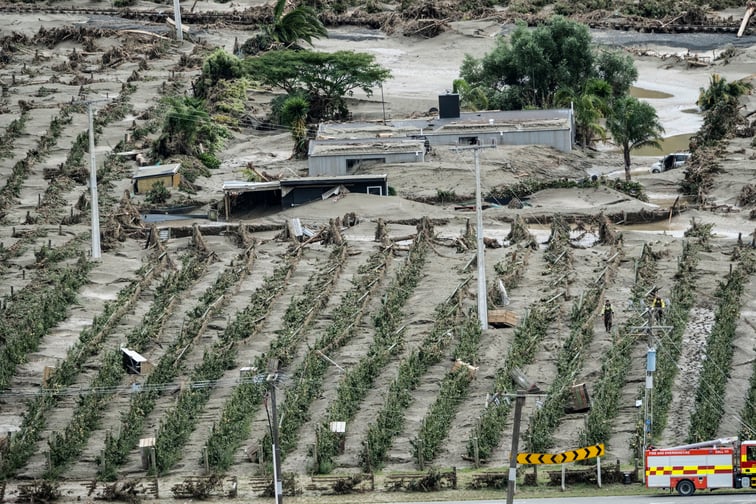

Cyclone Gabrielle Recovery Taskforce chairperson Sir Brian Roche urged New Zealand insurers to be responsible, noting that companies remaining in flood-prone areas while simply raising premiums would be an “abdication of responsibility.”
Roche said that simply continuing to insure homes at high risk of flood damage in the case of extreme weather events was not an appropriate response. Conversations about what homes can and cannot be built also need to take place, he said.
"I think there is going to have to be some quite grown-up conversations with various authorities about what is appropriate for the future,” Roche said in an interview. "We do live in a much more climate-impacted life and we have to respond to that. Our infrastructure has to respond to that, our insurance industry has to respond to that."
Roche’s statements come directly after Tower Insurance said that some of the homes worst hit by the weather event would not be rebuilt, but that the decision will be left to the government to decide those areas. That said, the firm noted that it would remain in those areas prone to damage by future weather events.
Roche also said that he would get insurance companies together for a discussion on the best path to move forward, give the flood-affected Kiwis certainty and achieve the best long-term outcomes. However, the process involved would be a negotiation balancing interests of the business sector with the common interests of society, he said.
He also acknowledged that while insurers have their own interests, they still have a “very important role in restoring this community's wellbeing.”
"They have their own interests, we have collective interests. I'm very confident that we are going to reach common ground,” Roche said. “They have openly and actively engaged with us to work collaboratively and I take that as a very good sign."
Some communities need to prepare for the worst, as the extensive damage caused by the cyclone will mean that some areas will have properties that cannot be rebuilt. Roche cited the Canterbury earthquakes in 2011 as an example.
"We did that in Christchurch in terms of the red stickers,”
Silt and debris have suffocated prime horticultural land and clogged up drainage systems, especially in Hawke’s Bay. Prime Minister Chip Hipkins and Roche visited the region recently to survey the extent of the damage and talk to some of the locals.
As for the ongoing recovery effort, Roche noted that it felt more responsive this time compared to the case in Christchurch, citing the regional groups’ involvement as a positive.
"I think I feel a lot more confident because the local communities are very heavily involved,” he said. “In Hawke's Bay, for instance, they have their own, as it were, recovery unit. They are working on what the priorities are for that region, and we will engage with them. So we're working very actively with them, as opposed to having a national solution."
The process of assessing properties, determining which to write off or repair, and agreeing on an overall work plan will take time.
"This is not a weekend working bee, getting a few mates around. This is going to be a very significant reinvestment program,” Roche said.
Tower Insurance boss Blair Turnbull called the recent weather events “a moment of truth for insurers” as the industry continues to tackle the growing problems of climate change.
What are your thoughts on this story? Please feel free to share your comments below.
